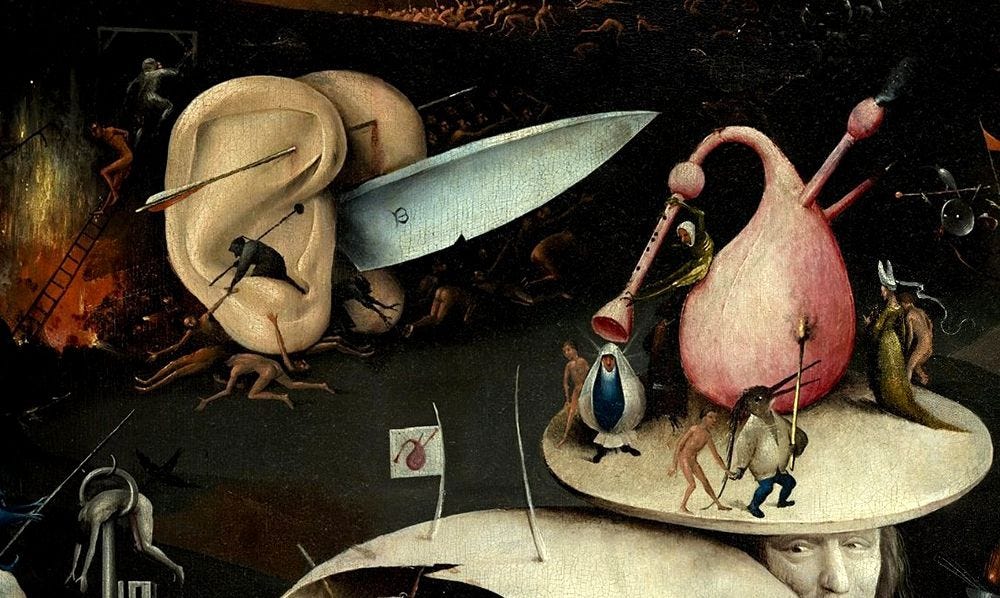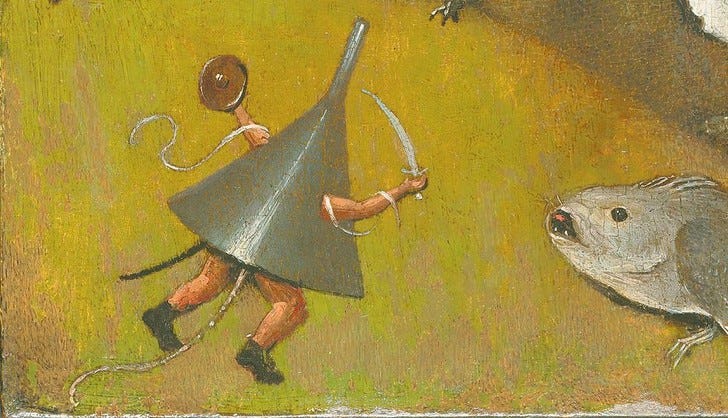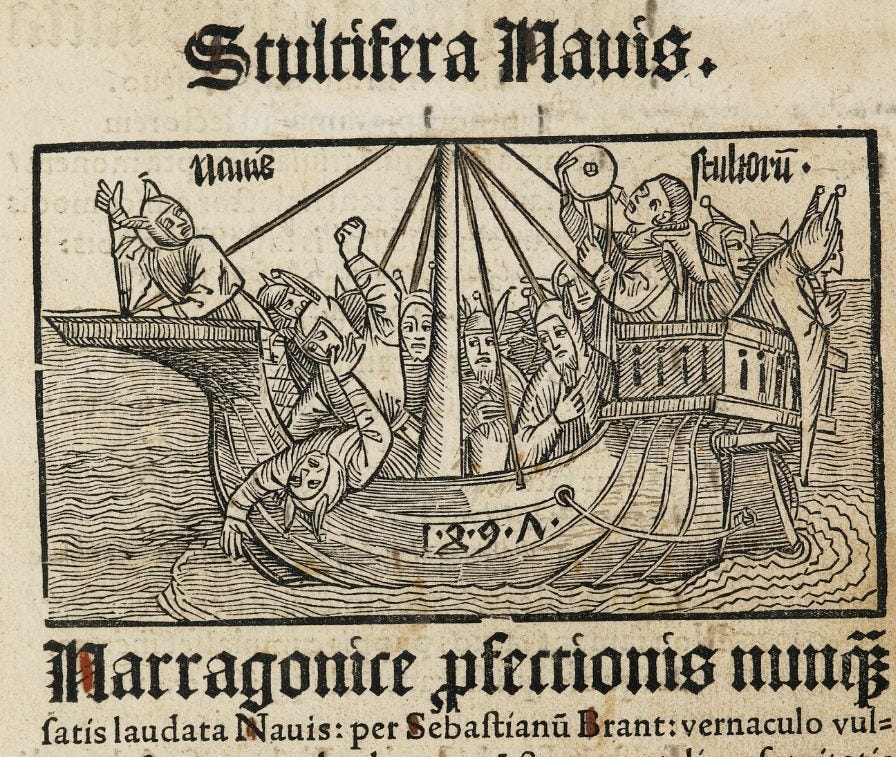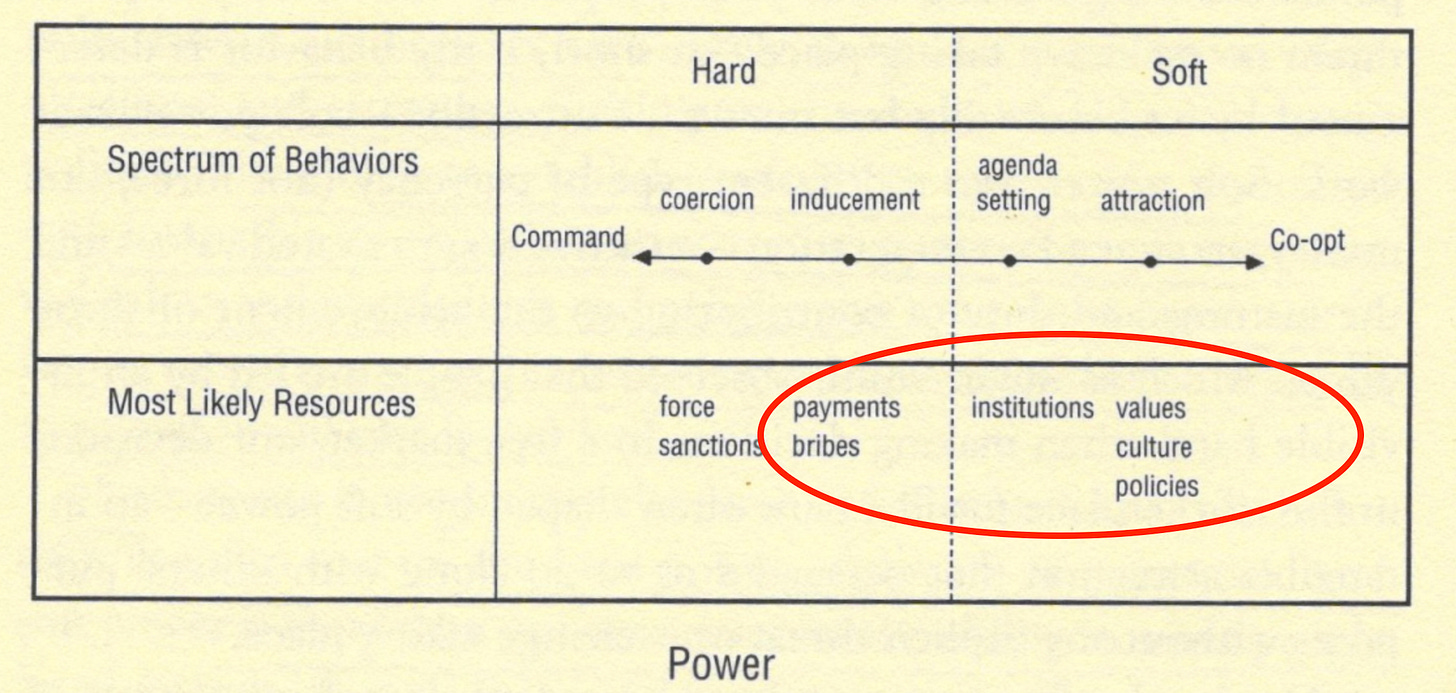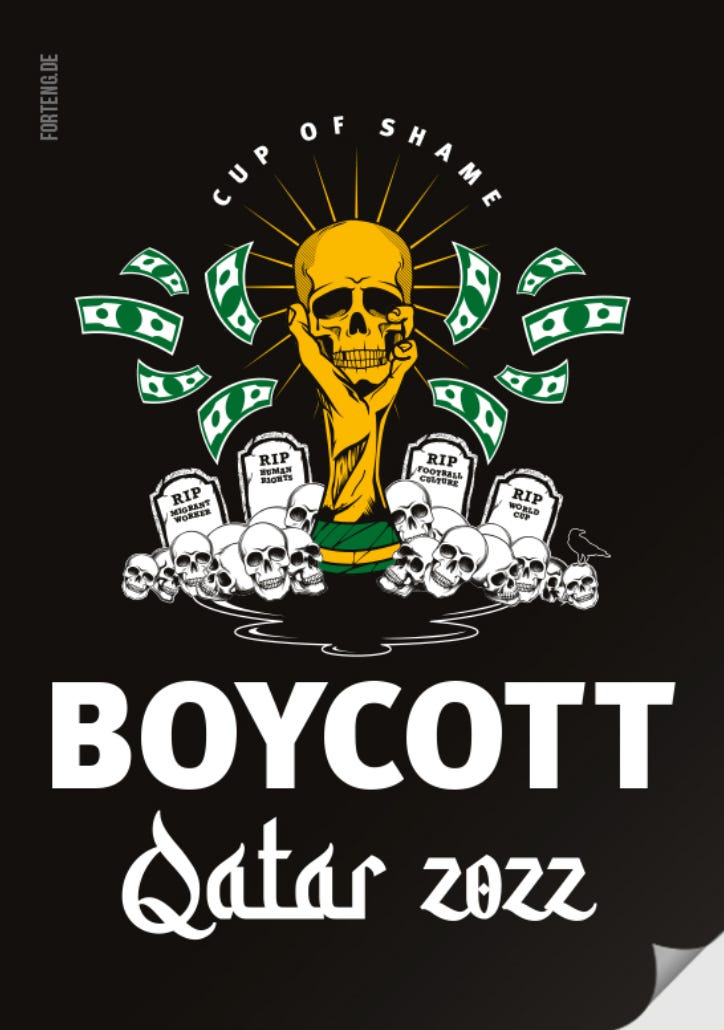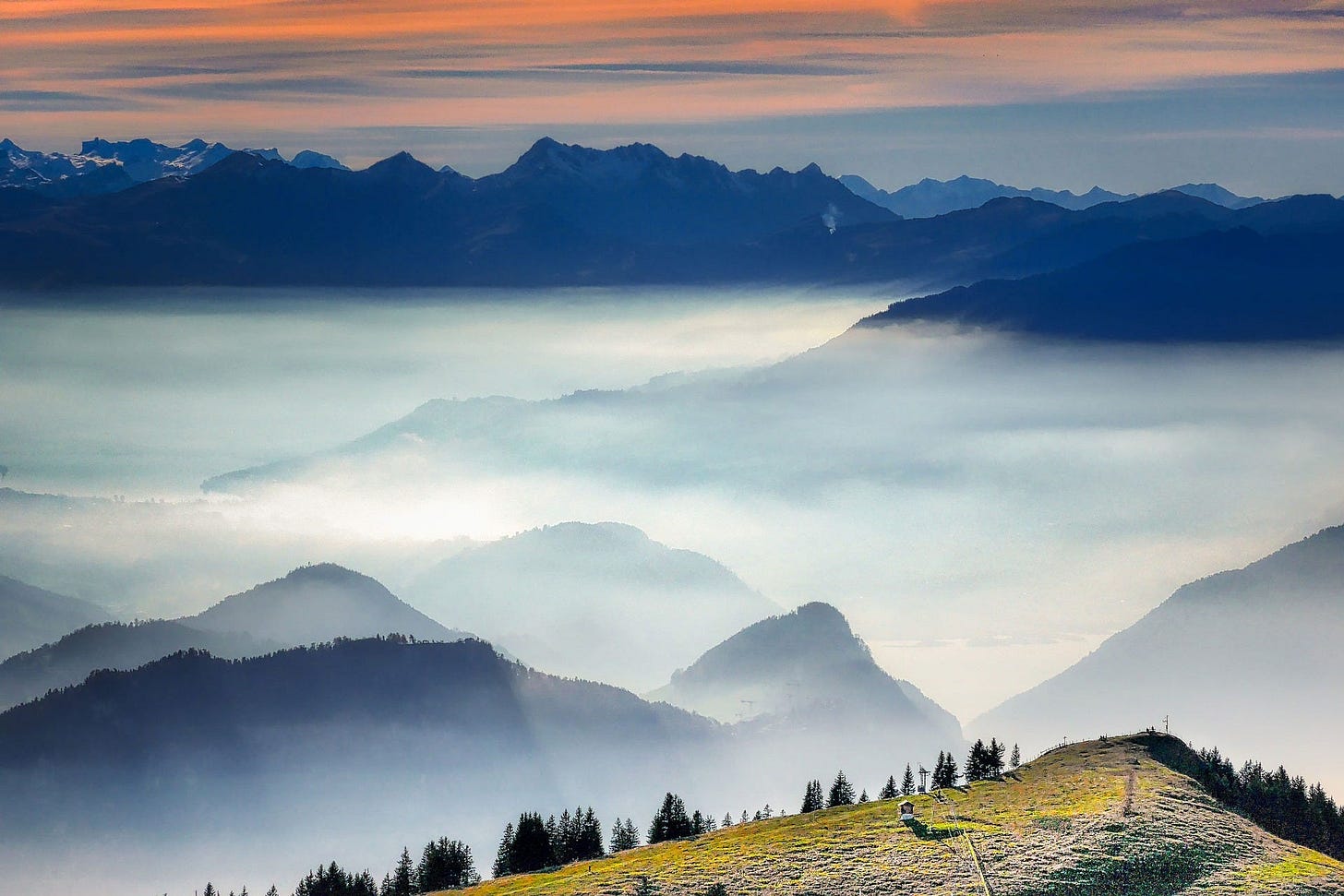An Awkward Qatar World Cup?
Maybe, but we need to get out of the trap of emotion.
To understand the world and make good decisions, we need good information. But how can we avoid being caught up in the media flow? Under the influence of emotions, don't we risk losing our sense of things and proportions? Here are our vulnerabilities. The lack of foresight prevents us from setting a safe course and making good decisions.
1/5. The issue of the World Cup in Qatar is a good navigation exercise. Like all hot topics, this one has a double trigger. On the one hand, it raises disturbing environmental and social issues, not to mention governance. On the other hand, it highlights the workings of the media machine and its business model.
In the Qatari case, the substance of the affair has taken the form of its container, i.e. the news and social networks. To avoid becoming cynical and to think and act wisely, what to do? No content is neutral. That is what a historian learns from his early training.
The news and social networks business model are the same: it is all about flow. The more intense the flow, the more profitable it is. Consequently, the flow must be constant. To go down the slope and feed the cash mill. So far, nothing more than an economy of circulation.
For me, the strategic problem lies elsewhere. And it is far more perilous.
Negative emotion seems to be the energy of news and social networks. No event escapes the sieve of cynical and peremptory judgment. Now, everything that makes us lose control of the information (thus riveting us to the screen) is good to take for the content seller. The French poet Arthur Rimbaud would have spoken of a "bateau ivre" , ie a "drunken boat" ; the humanists of the 15th century of a "nef des fous" , ie "ship of fools" .
2/5. At work, we all deal with media noise and world fury. Emotions often overwhelm us. Should we repress them? In my opinion, not at all! I am convinced that it is by confronting our emotions that we can reach a form of reason. That is to say, a capacity for reflection, and independence of decision.
The World Cup in Qatar is an explosive cocktail of contradictory emotions. All the more reason to try to tame it. To put it simply, we like sports but not slavery. How can we defuse this paradox that traps us and locks us? We have to activate our reflection, and direct it towards our source of emotions: Qatar itself. In other words, if I have a problem with this gas emirate, I must put myself in its place.
I need to put myself in the place of the Other, not to condemn him (that's justice) or excuse him (that's morality). I need to understand that my discomfort is linked to the precarity of Qatar itself.
To shed light on this path, I propose to summon geopolitics and interculturality.
3/5. What to do when my wealth is inversely proportional to my surface area (11,571 km²)? When you are two times smaller than Massachussets (20,328 km²), it is legitimate to be afraid of your neighbors. If I rule Qatar, I'm under threat from the powerful kingdom of Saudi Arabia (2.15 million km², three times the size of Texas). I know that Saudi Arabia despises me and thinks that my independence is irrelevant and that my gas should go to them. We could talk also about Iran… Finally, I know that sooner or later this gas will dry up. For me, Qatar, "Tick-tock" makes the clock!
Qatar's foreign policy is led mainly by the fear of being forgotten and abandoned. So it has to act fast, very fast, intensely, with the overflow of "gas dollars". In other words, the gas rent sets Qatar's diplomacy of influence in motion. And as we can see, it sways certain Western countries and organizations. For twenty years until now, through the arts, sports, and the media, the emirate has never ceased to influence the West to act as it wishes, but without ever forcing it.
If you look at it, you would think it was "soft power", to use Joseph Nye's concept. Unfortunately for Qatar, it lacks almost all the criteria of soft power. Let's see the table below. Neither "values", "culture", nor "policies" specific to Qatar reach our shores. On the other hand, Qatari "payments" and "snippets" flow into institutions and companies. It is both a lot and a little. Moreover, according to Nye's criteria, these capital flows are more about "hard power" than "soft power". Has it worked?
4/5. From now on, in 2022, the world knows how to "put Qatar on the map". The strategy of the gas emirate has exceeded all the expectations of its promoters. They have brought their small country to the forefront of the world stage. To consecrate this hard-won visibility, Qatar has taken over the biggest stage in the world: the World Cup. The biggest, but also the most complex, the most contradictory, and most... western product. Between sports, universalism, corruption, and politics. All the rest we see every day.
When you dine with the West, there is never a free lunch! It is especially true when you are the emirate of Qatar. If you want to gain a foothold in Western countries, you can't avoid the boomerang effect on your own country. That is to say, Western history and philosophy, individualism, progressivism, and freedom. In a nutshell, the Western way of life.
In other words, it is impossible to turn one's back on European history and its public opinions. At least those who put the death of thousands of slaves before the emotions of a World Cup final.
5/5. What is obvious is the flashy utilitarianism of the Qatar-Western relationship. So much so that one wonders if there is a real "relationship". Contrary to the love-hate relationship that Europe and Russia have, nothing vibrates with Qatar. Its policy of influence gives the impression of being as viewable as a flash in the pan.
The troubling Qatar-Western relationship is a lesson for every organization and every decision-maker. A long-term partnership isn't just about financial investments alone. Even well-understood interests are not enough to establish a healthy and sustainable relationship. It takes more. It takes real meetings, shared convictions, and respect.
Building something together that is bigger than ourselves requires a strategic vision, a long-term vision. Perhaps even a historical approach, the only one that allows us to ignore the media noise and better listen to our world.
Séverin D., PhD (LinkedIn)
#qatar #worldcup #history #geopolitics #intercultural #strategy #decision


